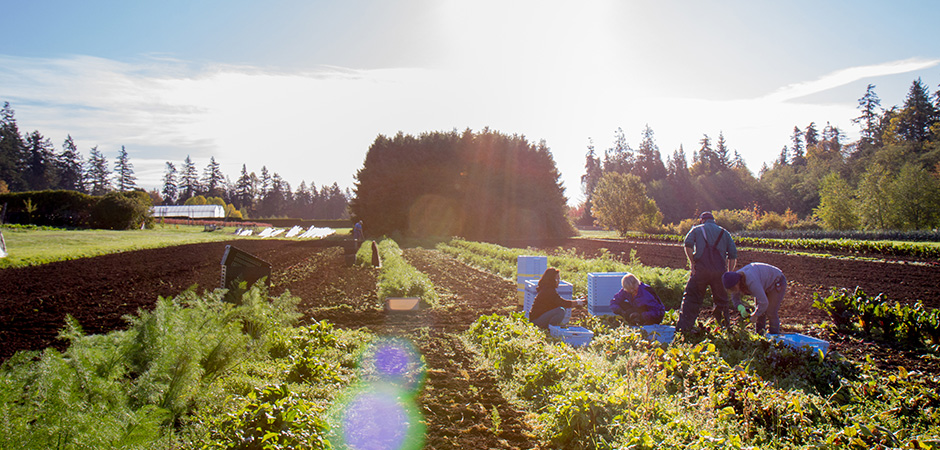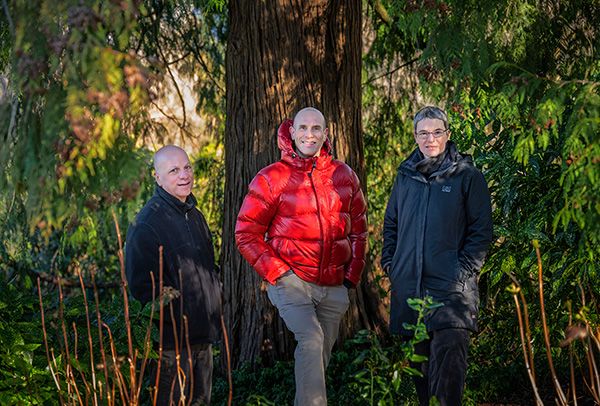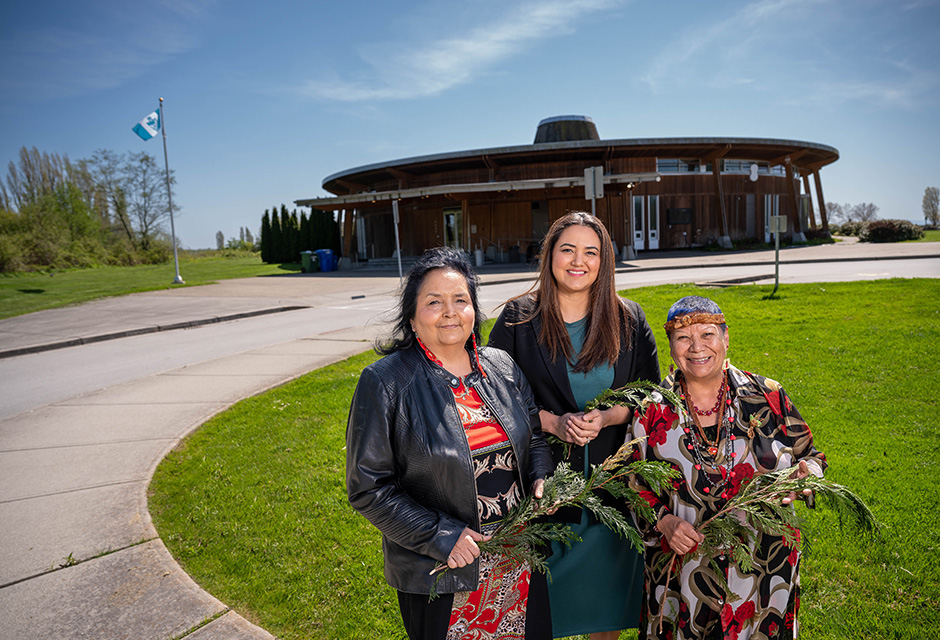A diet for healthier lungs and a healthier planet
UBC researchers are testing a secret weapon in the fight against air pollution: food!

Each year, respiratory illnesses are among the leading causes of hospitalization and premature death in Canada and across the globe. And those numbers are growing as temperatures rise and air pollution levels shift.
“Exposure to air pollution can trigger inflammation and oxidative stress in the body, with negative short- and long-term effects on the lungs, heart, and other organs,” says Dr. Emily Brigham, a UBC assistant professor of respirology and research scientist at the Vancouver Coastal Health Research Institute.
While Dr. Brigham counsels patients on ways to reduce their own exposure, she and others are also looking for ways to reduce risk in those who cannot.
“Unfortunately, the people least able to avoid the air pollution are often the ones impacted the most,” she says.

Creative and scalable solutions are urgently needed. Dr. Brigham and her team are investigating an intervention that holds promise as both a treatment and as preventative medicine: anti-inflammatory and antioxidant foods.
“We know from our and others’ research that foods rich in certain nutrients may reduce inflammation, and improve and protect people’s respiratory health,” she explains.
For example, kale, spinach, tomatoes and many other vegetables have high levels of antioxidants like lutein, which helps the body regulate the oxidative stress caused by air pollution. They also have high levels of fibre, which can stimulate the production of potent inflammation-fighting molecules by the bacteria that live in the gut. Fatty fish like salmon, meanwhile, are packed with omega-3 fatty acids that help to regulate inflammation.
Diets with more of these beneficial nutrients — and less of the pro-inflammatory nutrients found in fast foods and processed foods — could help the body to combat the negative effects of air pollution.
Dr. Brigham and her team are working with a registered dietician and a healthy food delivery service to measure the possible benefits. Their study, currently under review, will deliver specially selected meals and groceries to study participants and track how they respond to air pollution exposure.
The diet could be particularly beneficial to communities that are disproportionately affected by air pollution and respiratory illness. And with an emphasis on plant-based foods and fish, such diets are also better for the environment than those with more resource-intensive ingredients like red meat.
A diet rich in anti-inflammatory and antioxidative foods could be beneficial to communities disproportionately affected by air pollution and respiratory illness.
“These foods are good for us and the planet,” Dr. Brigham says. “But to really make an impact, they need to be convenient, affordable and take cultural preferences into account.”
The team is keeping all of this in mind as they consult with partners and communities — including patients — on how they might translate any positive study findings into accessible, real-life interventions. That means also taking into account the environmental impact of local, national, and global production and supply chains.
It’s a lot to consider, but given the importance of nutrition in every aspect of health, Dr. Brigham believes it’s worth the investment.
“There’s no way to separate the planet’s health from our own health. We need to protect people from the harms of air pollution, starting with those in highest need, while also working to limit, prevent and most ideally reverse harmful air pollution trends in the context of climate change.”
Never miss an issue of Pathways
Pathways — the UBC Faculty of Medicine’s digital magazine — features stories about cutting-edge health education, breakthrough research, and biomedical innovations that are making a difference in British Columbia and around the world. Discover the impact of our people and programs.





